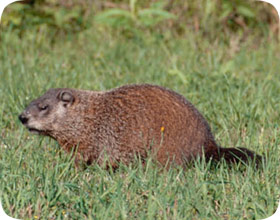Jacksonville Rodent Control
| There are many rodents in Florida. Rats are rodents. Mice are rodents. Voles are rodents. Beavers,
nutria, chipmunks, squirrels, flying squirrels, and more. Dolphins are not rodents. We of course do squirrel control and rat and mouse control, but
we also remove beavers, which can flood the land. We trap chipmunks, which will dig under your house. Flying squirrels form colonies in the attic. Voles
tear up your garden and eat the roots of your plants. We control them all, in a humane manner. |
|
 |
| We provide professional Rodent control for all of greater Jacksonville, FL including all of Duval
County and the towns/cities of Duval County, Clay County, St. Johns County, and Nassau County. We service the towns of St. Augustine, Palm Coast, Ponte Vedra Beach, Intracostal, and more. We are not a standard Jacksonville extermination company - we specialize only in wildlife, and
will identify and trap the Jacksonville Rodent, control the problem in full, and we give a guarantee on our work. |
|

What are some of the symptoms of a sick rodent?
Recognizing a rodent that is injured or sick is important and you should be aware of what needs to be done so as to help the animal. There are some conditions that can affect rodents and these are rather common. Noticing a sick rodent is important as you will be able to know how to handle the animal. Whether it is your rodent pet or just a rodent you found around, you should help it as best as you can. It is important to take precautionary measures to prevent transfer of sickness, of dangerous viruses or bacteria onto you, your family members or pets. Take good care to handle possibly sick rodent with extreme care and caution.
• Skin and hair: this is one of the things that you can notice very easily and you can tell whether the rodent is in the best shape or not. Hair loss is a common symptom that will tell you all isn’t well. When the skin on the hairless areas looks just normal, then the animal may just have thin hair. Look out for scratches, scabs, breaks and redness on the skin. Crusty skins and raw lesions must be a cause for alarm.
• Fight wounds: this is also another common thing that you can see on a rodent and you can know that things aren’t so good. The males actually like to fight. There are some rodents that can fight to the death. Tis can leave the rodents with some serious wounds on the skin.
• General sickness: you can actually know whether a rodent is sick or not by simply looking at it. The animal may have an appearance that I round and it may be very reluctant to move. The eyes may be squinted and the fur ruffled. There may also be a malformation of the brain and this can be seen at the forehead. There are conditions that aren’t treatable and can actually lead to a decline in health and ultimately death.
• Weight issues: if a rodent looks unhealthily underweight, that particular rodent may actually be very sick. You may see the pelvic bones, the vertebrae, the ribs and other bony prominences that tell you all is not well. The coat may also have an unkempt or rough appearance.
• A distended abdomen is also not a very good thing in a rodent. Read about what can rodents chew through?
|